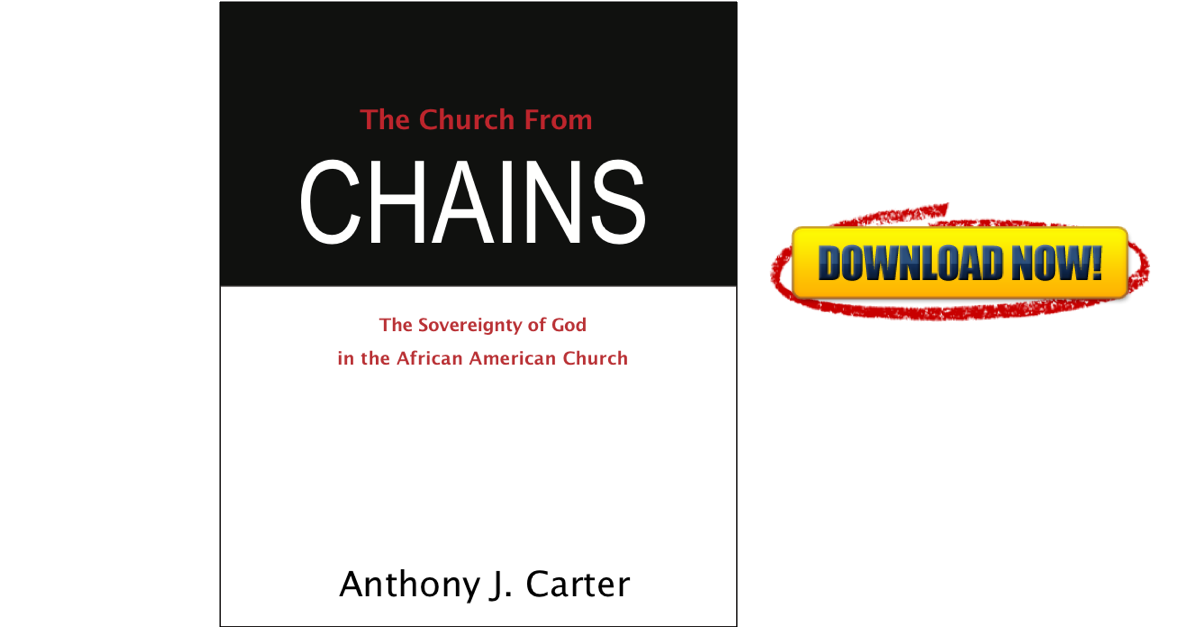Written by Anthony Carter (Black and Reformed, 2nd ed.)
A Common Heritage
It has been said of the United States and Great Britain that we are people separated by a common language. Similarly, it could be said of the distinctive black and white churches in America that we are a people separated by a common heritage. America is the most diverse nation on the earth. The experience of each racial group is as diverse as the individuals that make up those groups. Some came here as political refugees, while others were religious exiles. Some came as entrepreneurs, while others came as servants and chattel. Some came on ships seeking freedom, and others came on ships having lost their freedom. Yet as Jesse Jackson is fond of saying, “No matter what ship you came here on, we’re all in the same boat now.” And as it is with our temporal, nationalistic kingdoms, so it is more so with the eternal kingdom of God.
The kingdom of God comprises a diversity of people with a common heritage. This heritage is not primarily black, white, red, yellow, or brown, but is a heritage rooted in redemptive history. And the history of redemption is not black history, white history, or African or European history. It is God’s history. Therefore, any understanding of God’s activity in history must begin and end with the fact that though the individuals are diverse and varied, the God who sovereignly reigns over history is one and the same—yesterday, today, and forever. The context of the experience with God may change and be variously expressed, but if the experience is genuinely with the true and living God, the outcome is predictably and gloriously the same. Two examples may clarify this for us.
Horatio Spafford and the tumultuous sea
In the late 1800s, Horatio Spafford was a successful white businessman in Chicago. He held many prominent pieces of real estate along the north shore of Lake Michigan. Unfortunately, the tragic and infamous fire of 1871 practically destroyed all of Spafford’s holdings. Many of his friends lost everything they owned. It was devastating, to say the least.
Spafford was overwhelmed with the loss and calamity. Consequently, he sought to establish a more profound relationship with Jesus Christ. As a result, he decided that the best avenue for the fulfillment of this quest would be to leave the hustle and bustle of Chicago and move to Jerusalem. He booked his entire family, wife and four daughters (they had lost their only son years earlier to scarlet fever), on a ship from New York to France. At the last moment, however, he was called back to Chicago to tie up some loose business deals. He told the family to continue on, planning to meet them in France in a couple of weeks. Little did Spafford know that he had just seen his family alive together for the last time.
As the ship made its way across the Atlantic, it met with a terrible accident. In midocean, the ship collided with another ship and sank within minutes. When the survivors reached land, Spafford’s wife sent him a telegram that contained only two words: “Saved alone.” Spafford had lost all four daughters.
As he sailed to France to meet his wife, Spafford was made aware of the point in the voyage at which his daughters had been lost. As he stood on the bridge contemplating the loss of his children, he was inspired to write these words:
When peace like a river attendeth my way, When sorrows like sea billows roll; Whatever my lot, Thou hast taught me to say, It is well; it is well with my soul.
“It Is Well with My Soul” is a most beloved hymn in American Christianity. It was born out of a time of pain and distress, neither of which is foreign to white, black, brown, or any other racial designation of Christianity. In fact, it is the common ground on which God works in the lives of all his children.
Thomas Dorsey and his precious Lord
Move ahead 60 years. Again the scene is Chicago. A talented young black musician named Thomas Dorsey was making a name for himself by playing blues music throughout the Midwest. He had moved to Chicago from rural Georgia in the early 1920s in the hopes of taking the blues industry by storm. His talents were undeniable. He wrote more than two hundred blues songs and worked with some of the most prominent blues singers and musicians of his day.
But as the Depression set in, Dorsey realized that he was empty and longing for more fulfillment. So he turned to the only hope he knew, the faith that his parents had presented to him as a child growing up under the preaching of his father in Georgia. By 1932 Dorsey had all but left the blues scene and was playing gospel music throughout the area.
In August of that year, he and his young wife were expecting their first child any day. Reluctantly, Dorsey accepted an invitation to play at a revival meeting in St. Louis. Planning to be gone only a few days, Dorsey drove to St. Louis to play. He had been in St. Louis for only two days when he received a telegram that informed him that his wife had delivered a baby boy, but that she had not survived the delivery. Distraught, Dorsey had some friends drive him back to Chicago. When he returned, he found a weak newborn baby who would die only hours after his arrival.
Dorsey was naturally overwhelmed by this tragedy. At the age of 33 he had lost his family. For weeks the grief rested upon him until one day as he sat at the piano, he began to reflect on his circumstances and the words began to flow:
Precious Lord, take my hand, Lead me on; let me stand. I am tired, I am weak, I am worn. Through the storm, through the night Lead me on to the light. Take my hand, precious Lord; lead me home.
“Precious Lord, Take My Hand” is one of the most beloved gospel songs in the African-American gospel tradition. There are few hymnals today where these words are not found.
Different experiences – the same citizenship
Thomas Dorsey and Horatio Spafford were separated by time and culture. They were separated by race and position. Yet the providential experience of both with the one true God revealed a common heritage—one of faith and devotion. The black experience and the white experience in America are different and often in conflict. We need not deny this. As Christians, however, we can affirm that though our experiences may be contextually different, our membership—indeed our citizenship—is in the same kingdom, the kingdom of God. It is the eternal kingdom where the citizens are called and united under the same Spirit, the same Lord, and the same faith.
Ready for more?
Anthony Carter has put together a FREE resource based on his book, Black and Reformed. This revealing and humbling study will walk through the religious background of the African-American slave trade and show how God providentially (and quite literally) raised his Church from chain.
About the Author
 Anthony Carter (MA, Reformed Theological Seminary) is lead pastor of East Point Church in East Point, Georgia. He is the author of several books, including On Being Black and Reformed, and is contributing editor of Experiencing the Truth and Glory Road. He is also a frequent conference speaker, guest lecturer, and preacher. Tony lives in East Point with his wife Adriane and their five children.
Anthony Carter (MA, Reformed Theological Seminary) is lead pastor of East Point Church in East Point, Georgia. He is the author of several books, including On Being Black and Reformed, and is contributing editor of Experiencing the Truth and Glory Road. He is also a frequent conference speaker, guest lecturer, and preacher. Tony lives in East Point with his wife Adriane and their five children.



Comments